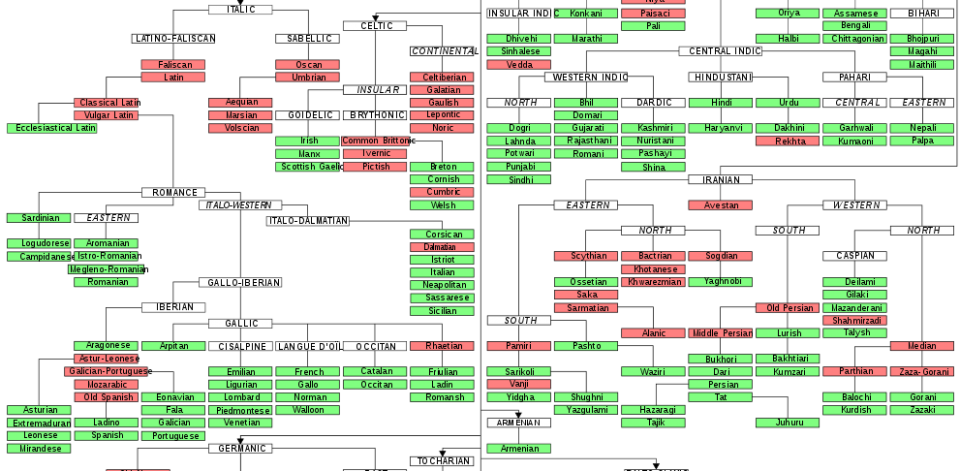 Website: http://linguistics.ucla.edu/
Principal Investigator(s): Prof. David Goldstein, Linguistics
Website: http://linguistics.ucla.edu/
Principal Investigator(s): Prof. David Goldstein, Linguistics
Prof. David Goldstein collaborated with HumTech to design and create a lab component for his Spring 2018 Linguistics 110 course, Intro to Historical Linguistics. The lab will teach the students the basics of the R programming language and quantitative reasoning. The ultimate goal of the lab is for the students to be able to use linguistic data to create and interpret phylogenetic trees showing language descent hypotheses, an important part of current historical linguistics scholarship. To achieve this, David and his team (including Canaan Breiss, a graduate student in Linguistics) built a collection of problem sets for each week of the course that l; leveraged the principles of scaffolding, active learning, and formative evaluation to help students practice historical linguistics analytical methods. This project was funded by an Instructional Improvement Program grant from UCLA’s Office of Instructional Development and by HumTech. HumTech contributed expertise in project management, grant writing, the R programming language, and instructional design to the project team.
